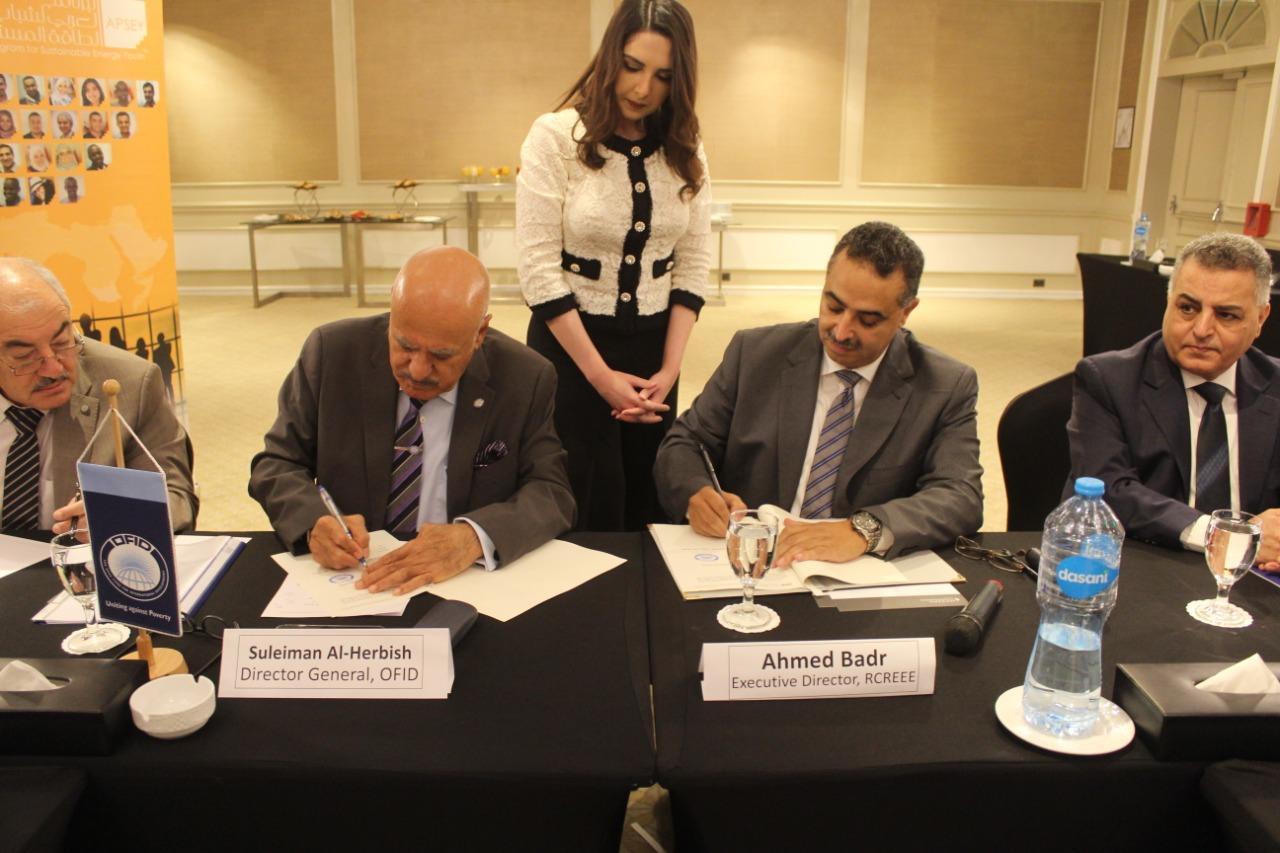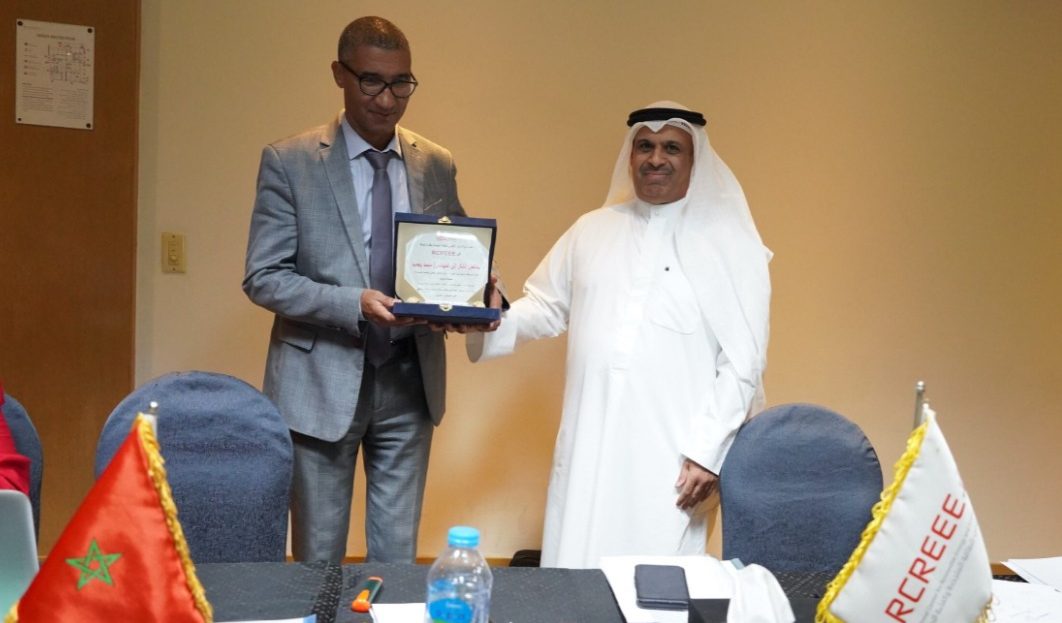
The Arab Program for Sustainable Energy Youth™ (APSEY) awarded a grant by OFID
September 15, 2018- Cairo, Egypt: RCREEE Executive Director, Dr. Ahmed Badr and OPEC Fund for International Development (OFID) Director-General, Mr. Suleiman J. Al-Herbish signed a third grant for RCREEE’s regional internship program, APSEY.
The program received a total grant of 180,000 USD to support young professionals and post-graduate students from Yemen, Sudan, Palestine, Djibouti, Mauritania, Somalia and Syria aspiring to work in the renewable energy and energy efficiency fields.
In his speech Mr. Al-Herbish highlighted that “Energy poverty is a challenge that we can only overcome through strategic partnerships such as our partnership with the Regional Center for Renewable Energy and Efficiency (RCREEE)”.
“We are co-financing APSEY ™ program for the third time as it sponsors the technical development of the Arab region’s youth in renewable energy and energy efficiency fields. Also, I would like to congratulate APSEY ™ program alumni for completing their internship hoping their efforts will continue to further support and promote development achievements, especially in the energy field ” said Mr. Al-Herbish in his word.
The signature ceremony was attended by First Undersecretary for Research, Planning and Authorities’ Follow up at Ministry of Electricity in Egypt, Dr. Mohamed Mousa Omran, RCREEE Executive committee chairlady, Eng. Maha Moustafa and OFID’s Director of Strategic Planning & Economic Services, Mr. Faris Hasan, OFID Grant Officer, Ms. Souhad KHRIESAT and APSEY Program Manager, Ms. Noha Gamal. Besides, RCREEE and OFID’s senior management members along with RCREEE team attended the ceremony.
Dr. Ahmed Badr explained that RCREEE is extremely honored and excited to continue this partnership which is now a cornerstone in the region’s youth development. “We are privileged to have the opportunity to support the region’s future leaders in sustainable field. This program offered us a unique opportunity to invest in the future of our member states and what’s a better investment than our youth”
Following the grant signature, APSEY R10 intern from Palestine, Eng. Shahd Aabusirryeh briefed the audience on the 10th round experience, exposure and challenges.
Since its launch in 2013, around 60 youth from RCREEE member states have successfully completed the internship program. OFID support for APSEY started in 2014 and was extended in September of 2016.
About the Arab Program for Sustainable Energy Youth™ (APSEY)
The Arab Program for Sustainable Energy Youth™ (APSEY) is a regional sustainable energy internship program which targets young professionals and post graduate students of engineering, economy, and law fields from the Arab region.
The program aims to boost technical and operational capacities of the region’s young talents interested in renewable energy and energy efficiency fields. The program recruits 12 interns every year on two rounds for a hands-on experience in the center’s research and analysis, policy briefs, technical assistance, and other related activities. The opportunity covers full travel and accommodation expenses in Cairo in addition to a monthly salary.

